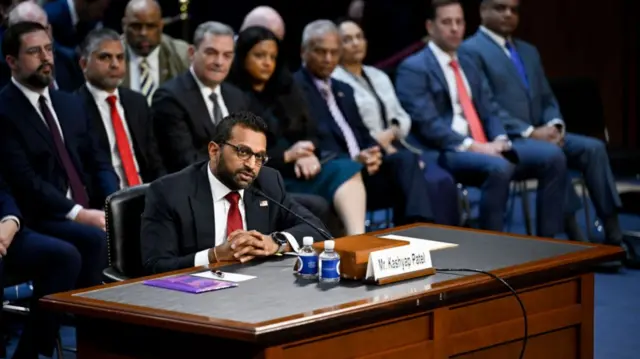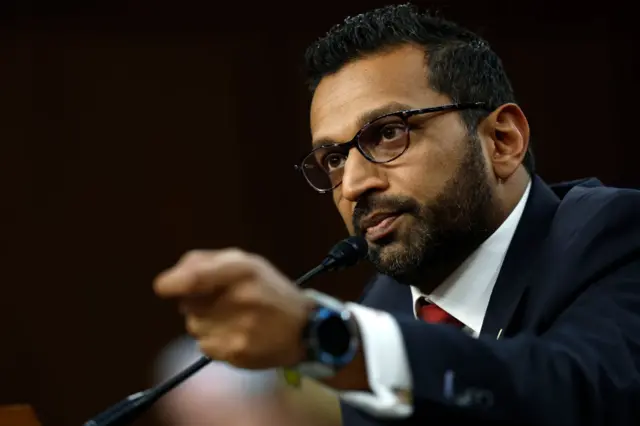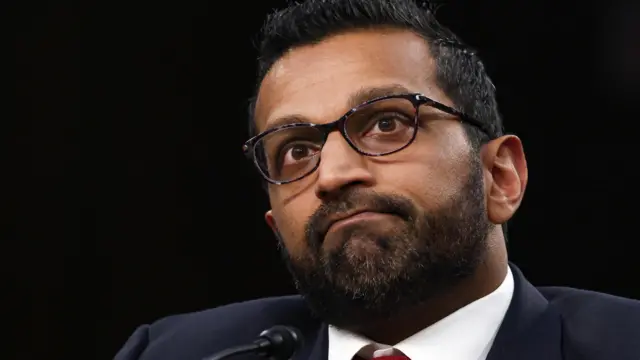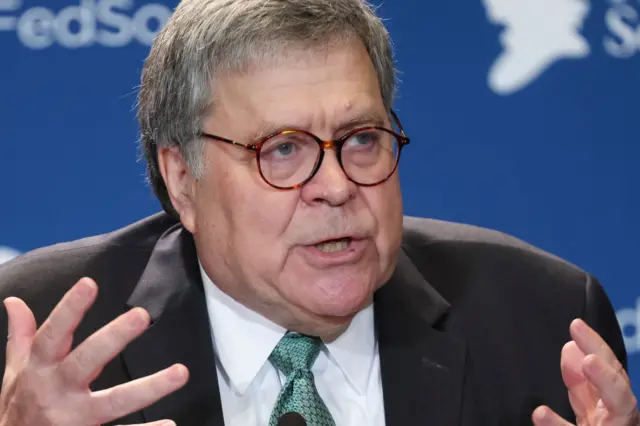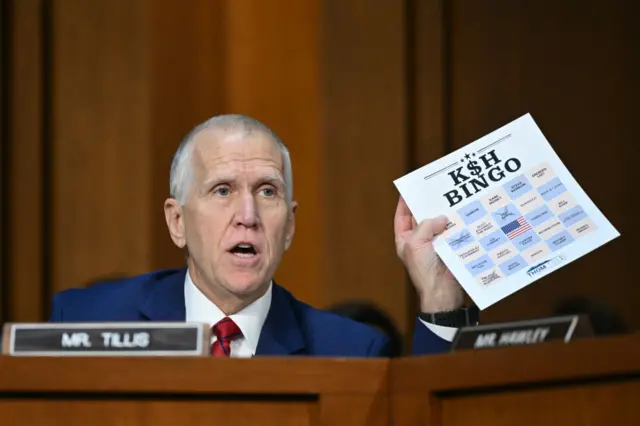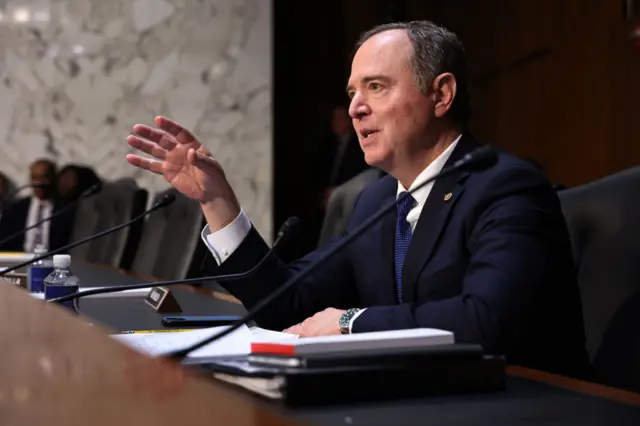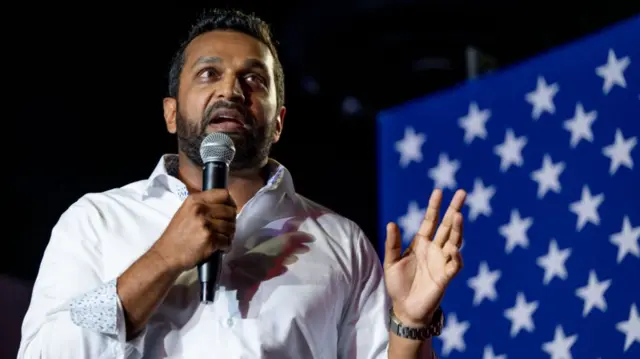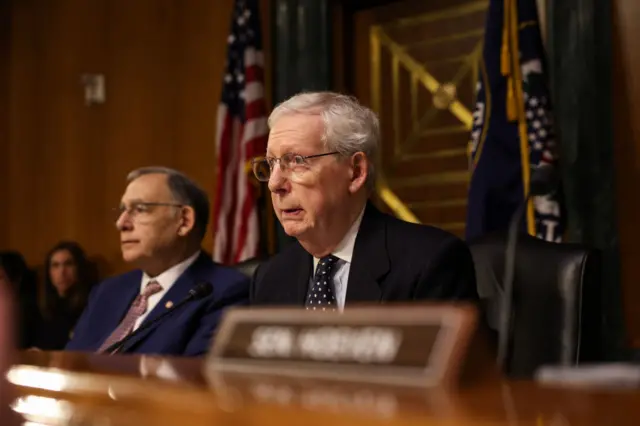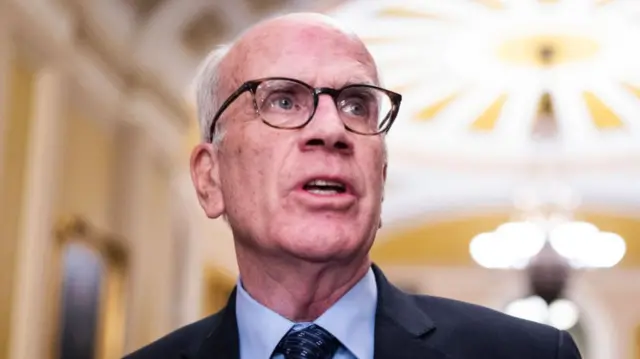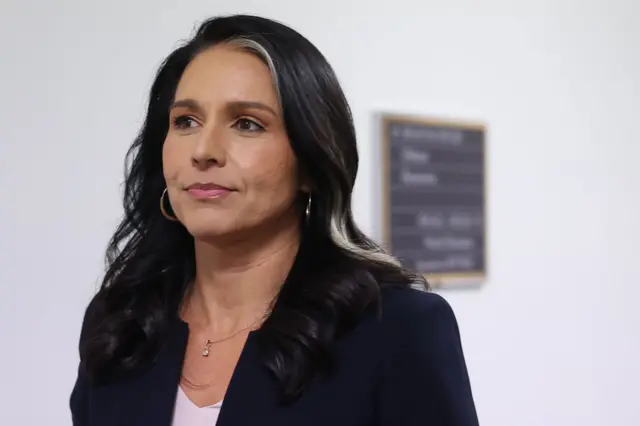Capitol Hill busy with hearings for three of Trump's most controversial pickspublished at 21:43 GMT 30 January
 Phil McCausland
Phil McCausland
Reporting from New York
It has been a busy day on Capitol Hill, as three of Donald Trump's most controversial nominees were reviewed by US Senate committees.
Led by the Republican majority, senators held hearings for director of national intelligence nominee Tulsi Gabbard, FBI director nominee Kash Patel and secretary of health and human services nominee Robert F Kennedy Jr.
Each one has previously espoused views about their specific topic areas that would be a significant departure from those who preceded them.
While it was clear through the hearings that supporters viewed the candidates as unorthodox picks who would shake up American bureaucracies, some critics considered Gabbard, Patel and Kennedy to have had significantly changed their positions ahead of the hearings.
Senate Democrats interrogated the nominees about where they stood on a number of substantive issues, and Republicans teetered between grilling them and circling the wagons in support of Donald Trump's picks.
We are pausing our coverage for now, but we will continue to bring you the latest on Trump's picks and whether the Senate votes to confirm them.
Remember: If the committees who held the hearings confirm the nominees, each one can only afford to lose three Republicans when the entire Senate votes - assuming all Democrats oppose them.
Read our full coverage here
